The workshop aims to exchange, analyze and discuss in depth theoretical and practical issues, aiming to propose appropriate solutions, models and mechanisms to improve the effectiveness of ensuring and assessing educational quality in the whole system.
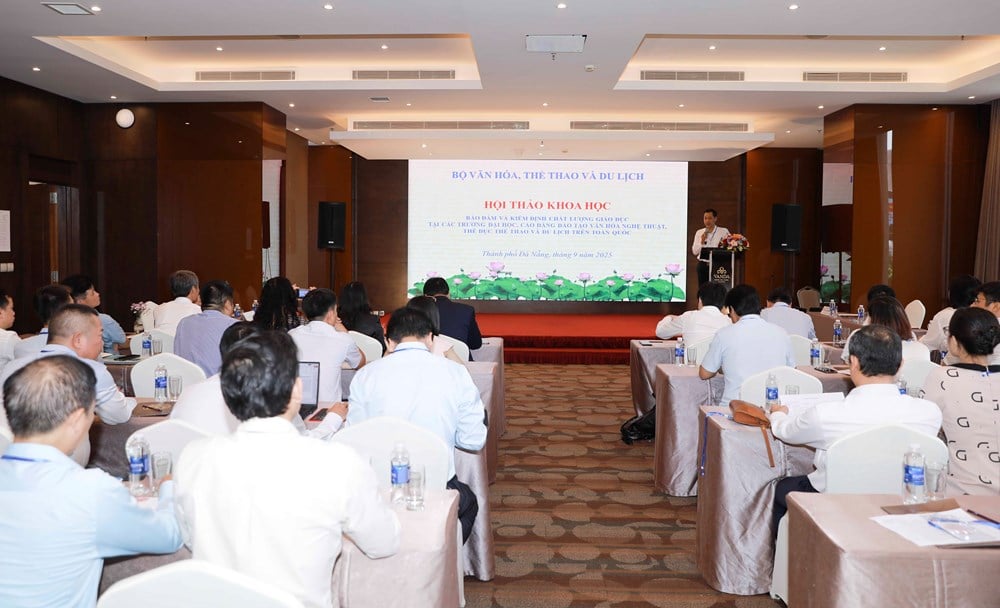
In his opening speech, Associate Professor Dr. Dang Ha Viet, Director of the Department of Science, Technology, Training and Environment, emphasized that in the context of fundamental and comprehensive innovation in higher education and vocational education, quality assurance and accreditation play a key role in improving training capacity to meet the requirements of regional and international integration.
Associate Professor, Dr. Dang Ha Viet said that new regulations on training program accreditation (Circular 04/2025/TT-BGDĐT) along with adjustments to accreditation mechanisms and standards in recent years have dramatically changed the legal framework and practical requirements for training institutions.
The new points of the Circular focus on strengthening the internal quality assurance system, data management, output measurement and quality improvement – considered core elements to meet the new accreditation criteria.
As of December 31, 2024, the rate of higher education and vocational training institutions conducting accreditation is high. In the higher education sector, 8/13 training institutions have been assessed and accredited; in the vocational education sector, this figure is 6/13 institutions.
However, in reality, there are still differences between industries and regions, as well as between establishments that have effectively implemented quality assurance systems and those that have not.
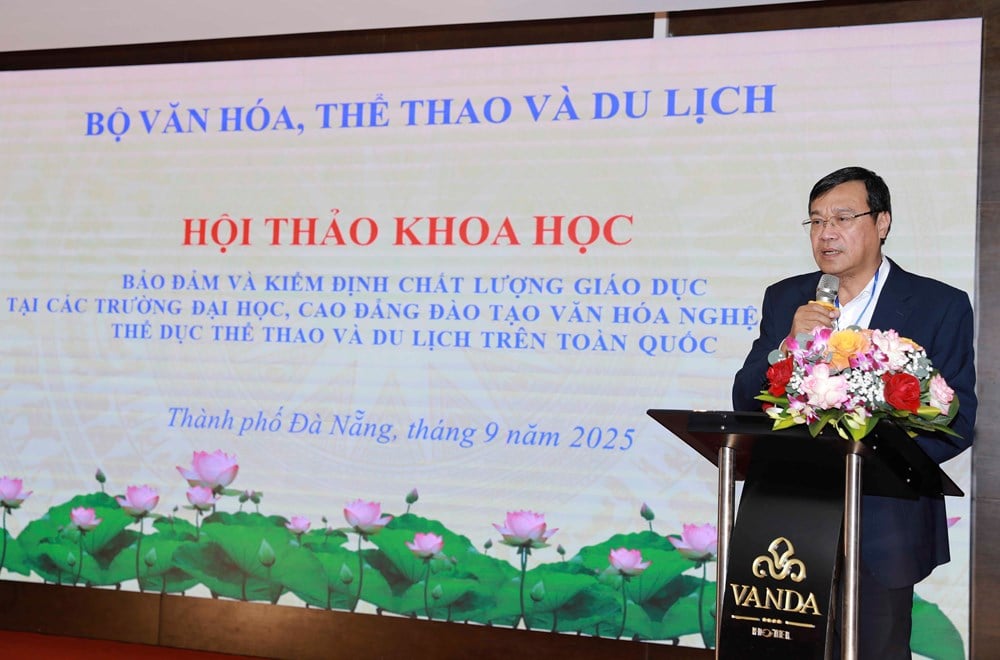
This scientific workshop is an important opportunity to update, exchange and link actions between management agencies, training institutions and relevant parties in the process of implementing new program accreditation regulations and criteria.
Focusing on the specific characteristics of the cultural, arts, sports and tourism sectors will help propose feasible solutions, ensuring that the accreditation process is both in line with professional standards and suitable for training practices and the labor market.
At the workshop, delegates discussed and shared many presentations revolving around main contents such as: Current status of internal quality assurance (IQA) system in training institutions; achieved results, limitations and causes; Challenges when operating internal quality assurance (IQA) and external quality assurance (EQA) systems in parallel, especially in connecting with national, regional and international standards;
Experience in implementing quality accreditation, from self-assessment to external assessment and publication of results; The role of the board of directors, lecturers, students, alumni and businesses in accompanying, criticizing and promoting quality; Application of digital technology, big data and artificial intelligence (AI) in collecting, analyzing evidence and improving training quality;
Building a culture of quality throughout the school, considering this a key factor to maintain sustainable development; Managing the quality of the teaching staff, scientific research activities and technology transfer, focusing on the characteristics of lecturers, artists, athletes, practical experts, etc.
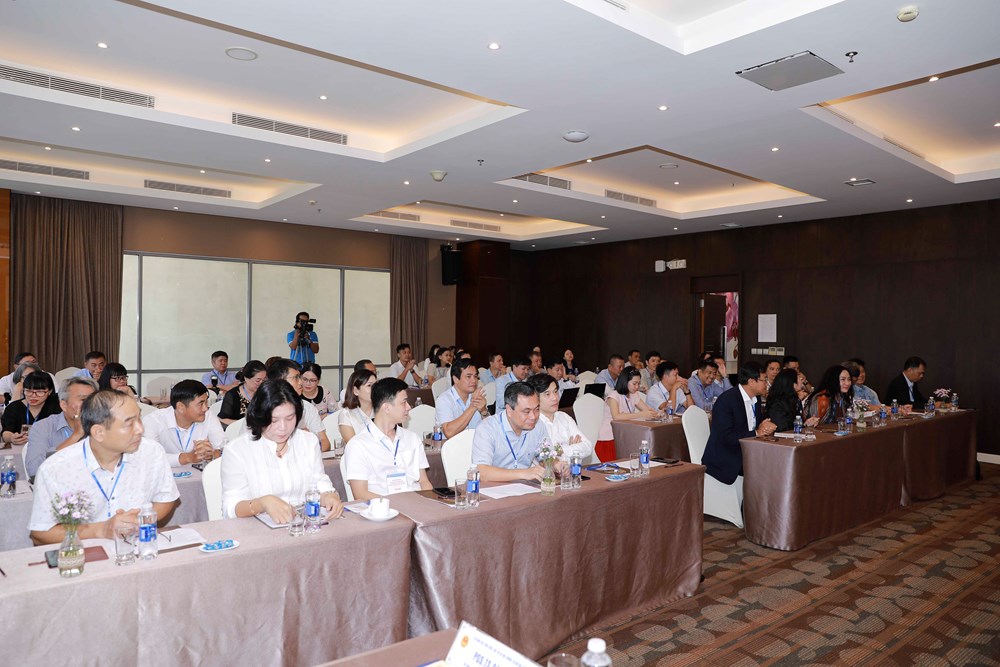
Master Tran Lam Kim Phuong (Ho Chi Minh City University of Culture) shared her experience in implementing solutions to build a modern and sustainable internal quality assurance system. Accordingly, it is necessary to raise awareness and build a quality culture among all staff, lecturers and students; improve the organizational structure and improve the capacity of the quality assurance team; and at the same time, link quality assurance work with the school's development strategy and action plan.
Dr. Nguyen Thi Kim Hoa (Northwest College of Culture and Arts) said that improving the quality of accreditation in the context of educational innovation and integration requirements is an urgent task of strategic significance. According to her, it is necessary to strengthen the connection between training activities and the practical needs of the labor market, especially in the Northwest region, to ensure employment output, thereby sustainably developing cultural and artistic human resources in the highlands.
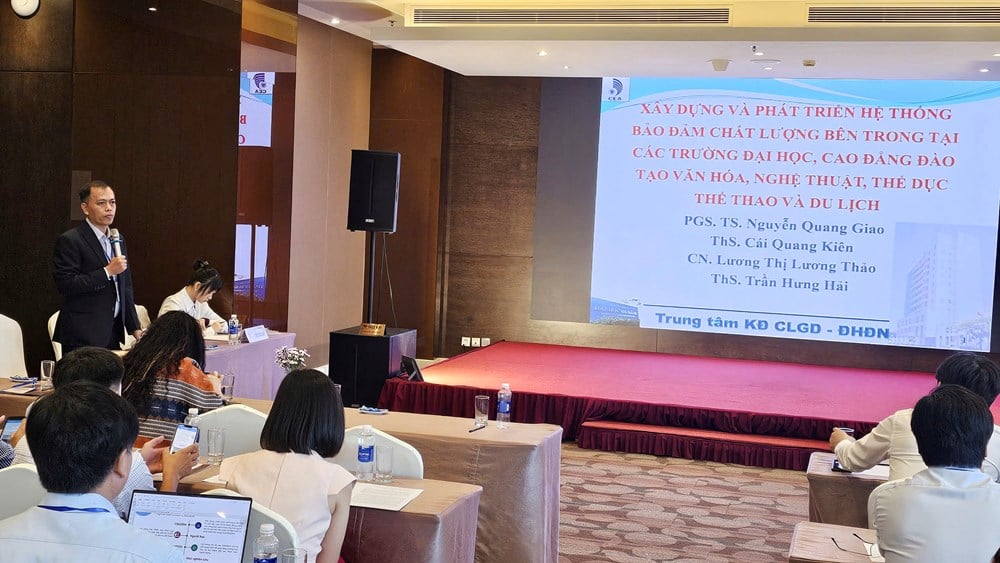
Ms. Dao Thi Kim Quy (Da Nang College of Tourism) said that the quality of human resources is always the top concern of tourism businesses to develop services to meet the increasingly high demands of customers.
To improve the quality of human resources, training cooperation between schools and enterprises is the optimal solution to eliminate the gap between training and work practice. Training cooperation in enterprises does not stop at the form, but needs to be implemented in a substantial way, with a long-term strategy and focus on quality assurance.
The synchronous and substantial implementation of solutions will contribute to improving training quality, meeting the human resource needs of the tourism industry in the integration period.
Source: https://baovanhoa.vn/van-hoa/tang-cuong-bao-dam-chat-luong-trong-giao-duc-van-hoa-nghe-thuat-the-thao-va-du-lich-171442.html







![[Photo] Binh Trieu 1 Bridge has been completed, raised by 1.1m, and will open to traffic at the end of November.](https://vphoto.vietnam.vn/thumb/1200x675/vietnam/resource/IMAGE/2025/10/2/a6549e2a3b5848a1ba76a1ded6141fae)
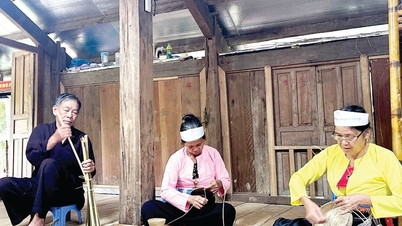

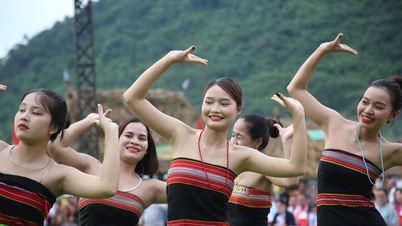


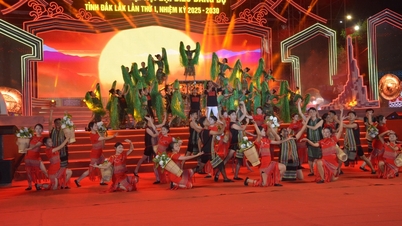

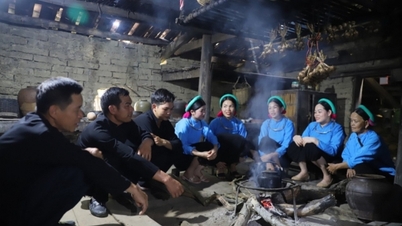

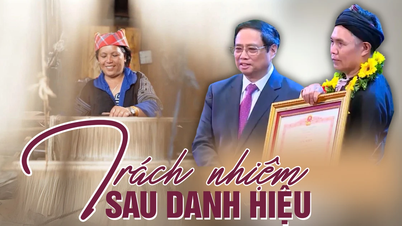



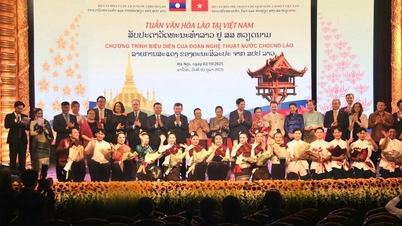
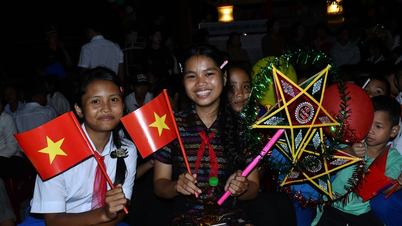

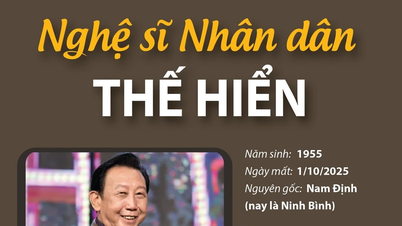








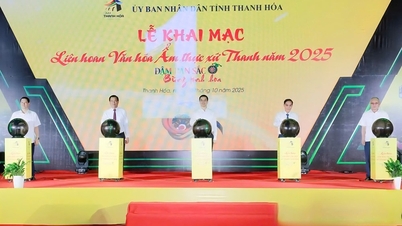
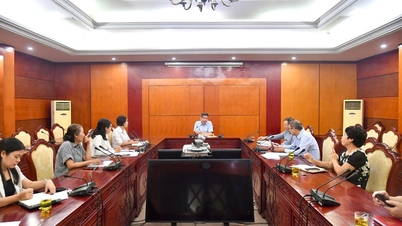
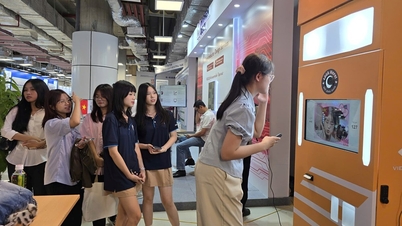

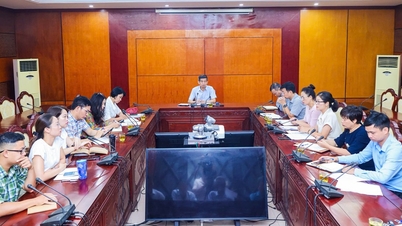
















































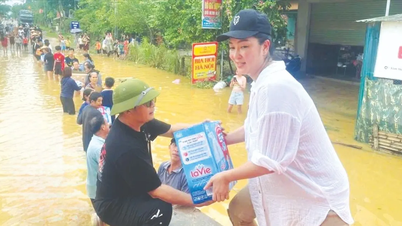
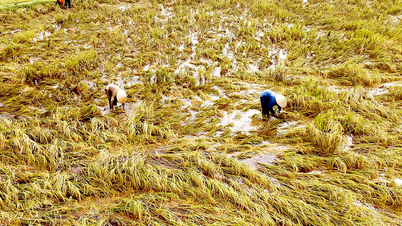
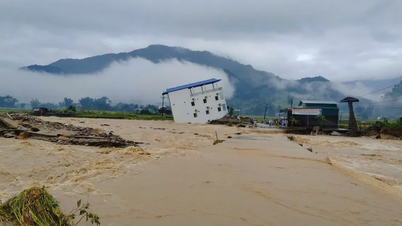
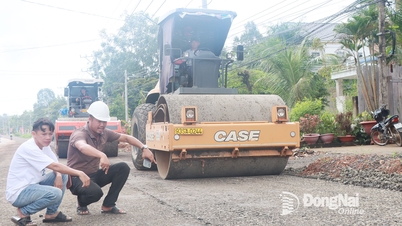

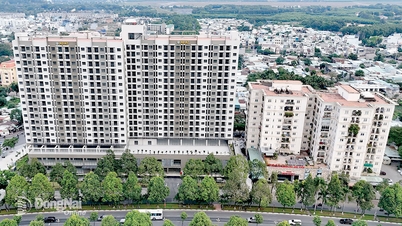
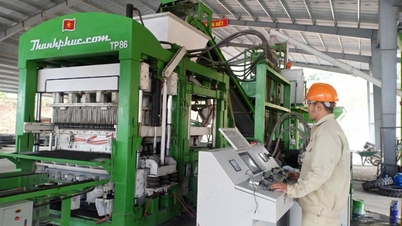












Comment (0)